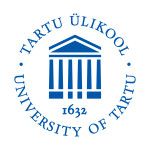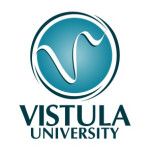About the program
Máster
Título
Inglés
Lengua de las instrucciones
1 año
Años de estudio
Tiempo completo
Modo de estudio
Estonia, Tartu
Location
The study programme has a very practical focus. A significant part of teaching in this programme will simulate real-life situations. Students gain access to 30 IT Law practitioners and IT specialists from around the world participating in the programme. As consultants, lecturers, or mentors, they synchronize legal education with technical developments in the ICT sector. Broad and comprehensive understanding of IT Law: we provide a systematic understanding of all major subfields of IT law as well as skills necessary for practising in this area. Along with that, we create extensive links between technical, legal, and policy aspects of development and uses of ICTs, putting heavy emphasis on case studies, real-life exercises, trend assessments, and problem-solving. The students will master a set of technical skills typically required in the ICT sector, e.g. elementary skills in programming, cryptography, database technology, and software engineering. Graduates will be ready to provide legal advice on ICT related matters across jurisdictions and work anywhere in the world. They will be able to perform interdisciplinary and comprehensive regulatory, analytical, and expert work in the field of IT Law, having all necessary skills to face the challenges posed by the extraterritoriality, novelty, and complexity of its problems. Why study Information Technology Law at UT? -UT is ranked in the top 300 universities in the world in Law (QS Rankings 2019). -The programme is designed to provide both technical and legal skills for working as an IT lawyer. -The programme is taught by academics and practitioners in the field. -Take part in conferences, summer schools and competitions, provide legal services to the start-up community in the TechStartup Legal Clinic and work on current challenges in the IT Law Lab. -Estonia is considered as an international leader in IT for its e-solutions and openness to technological advancements.
Required documents for admission
When applying for admission to University of Tartu in Estonia you should prepare all required documents. Request a list of necessary documents directly from a university, as it may vary for different countries. Using our live chat, you can also ask for sample documents.
- Admission interview, essay, portfolio or other requirements, if any
- Secondary school certificate for bachelor's studies
- Copy of the passport page stating personal particulars
- Application fee
- Online Application form
- Bachelor's diploma, or equivalent, for master's studies
- Proof of the English language proficiency (TOEFL, IELTS etc.)
- Motivation letter
- Official certified translation of the secondary school certificate or bachelor's diploma into English language
Tasas de matrícula
~ 4431 US$ / año
Tasa para estudiantes internacionales
~ 4431 US$ / año
Tasa para estudiantes nacionales
Our services are free of charge. Free Apply does not in any way own, manage, operate or control this university.
Similar programs in other universities
Master of Computer Engineering
Polonia, Varsovia
PROGRAMME DESCRIPTION The Master’s programme in Computer Engineering at Vistula University is your opportunity to gain expert knowledge and start a career in the IT sector. If you...
Master's degree programme CYBERSECURITY
Italia, Turín
Nowadays, computer networks constitute the backbone of modern society. The cyber-physical systems are ubiquitous, and the devices used daily are increasingly smarter, more connecte...
Master's degree programme DATA SCIENCE AND ENGINEERING
Italia, Turín
At present several scientific and humanistic disciplines make strong use of digital data, mainly in order to analyse decision-making processes. Graduates in "Data science and engin...
Data science
Francia, Villeneuve-d'Ascq
This Master program in 2y aims at preparing high level scientist for research in a laboratory, possibly by pursuing a PhD program in data science, machine learning, signal processi...
Master of Computer Science
Polonia, Katowice
The Faculty of Science and Technology offers Master’s degree studies in Computer Science, which duration is 3 semesters. The graduate, exhibiting special proficiency in IT knowledg...
More about Information Technology Law
Learn more about your future job responsibilities and career prospects after completing the Information Technology Law program.




